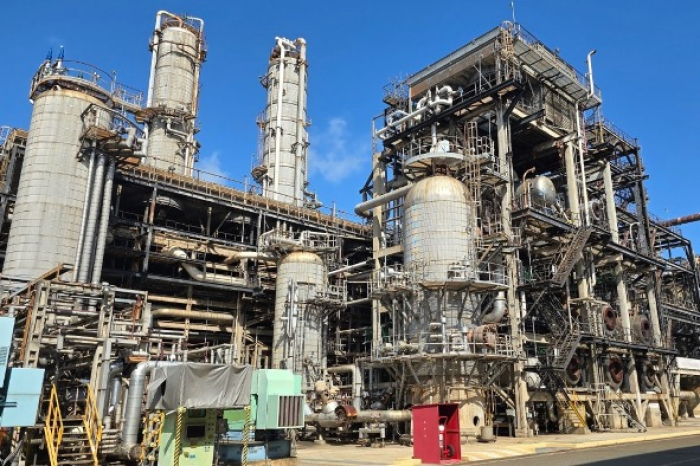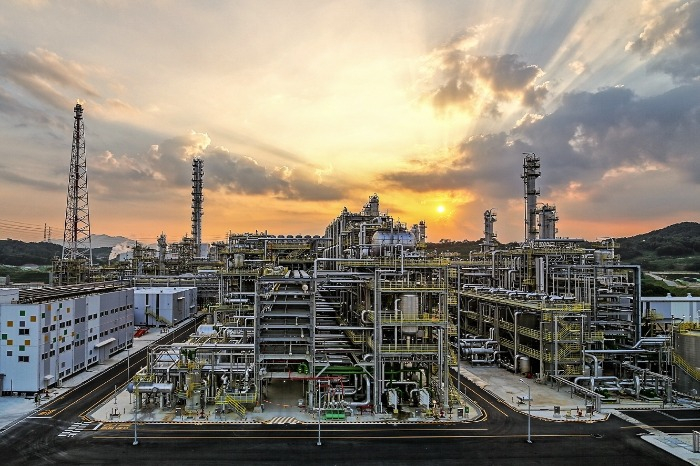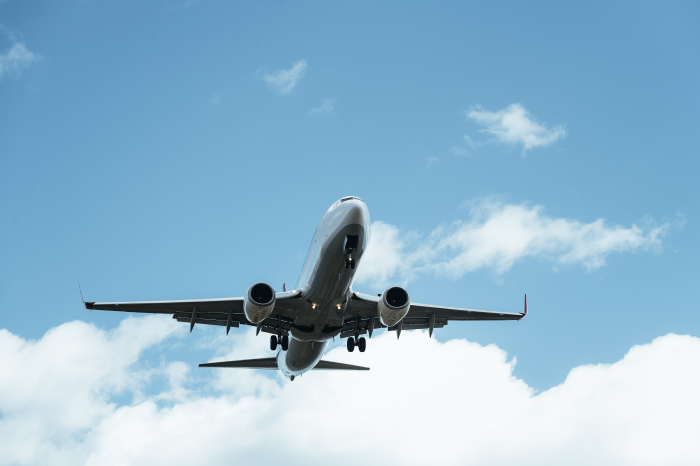Energy
South Korean oil refiners to jointly build SAF plant
The government is considering directly importing SAF feedstocks on behalf of oil refiners
By Jan 24, 2025 (Gmt+09:00)
2
Min read
Most Read
LG Chem to sell water filter business to Glenwood PE for $692 million


KT&G eyes overseas M&A after rejecting activist fund's offer


Mirae Asset to be named Korea Post’s core real estate fund operator


StockX in merger talks with Naver’s online reseller Kream


Meritz backs half of ex-manager’s $210 mn hedge fund



South Korea’s four major oil refining companies will jointly build a sustainable aviation fuel (SAF) plant in the country, for which the government may offer subsidies and tax cuts, according to industry sources on Friday.
SK Innovation Co., GS Caltex Corp., S-Oil Corp. and HD Hyundai Oilbank Co. have recently discussed the joint SAF plant construction plan with the Ministry of Trade, Industry and Energy and the Ministry of Land, Infrastructure and Transportation, the sources said.
The four oil refiners will share the construction cost and jointly operate it through a special purpose company.
It will be located in one of Korea’s four main petrochemical complexes: Ulsan, South Gyeongsang province; Yeosu, South Jeolla province; and Seosan and Daesan in South Chungcheong province.
Building an SAF facility will likely cost more than 1 trillion won ($700 million) based on a processing capacity of 250,000 tons of fuel, the sources added.
They expect the new SAF-dedicated plant to improve their SAF production yields, which currently stand at less than 10%. However, their joint facility is expected to convert 60-80% of bio-based feedstock into SAF.
Except for SK Innovation, the plant will likely become their first SAF plant. Last year, SK Energy Co., a subsidiary of SK Innovation, completed the country’s first SAF-dedicated production line and became the first Korean oil refiner to export the low-emission fuel to Europe.
The move comes as the global transition to SAF blends threatens Korea's top spot in the aviation fuel export market.
In 2023, the European Union passed a law stipulating that 2% of jet fuel must be sustainable by 2025 and 70% by 2050. Korea will mandate that 1% of aviation fuel is an eco-friendly alternative starting in 2027.

The government will designate SAF as a national strategic technology and cut taxes on SAF-dedicated facilities by up to 15%. Oil refining plants currently receive a 3% tax cut.
The government is also considering providing subsidies to SAF facilities, while buying SAF feedstocks on behalf of domestic refiners struggling with export quotas by palm oil producers.
To do so, the Korean government may enter into direct negotiations with Southeast Asian nations such as Indonesia and Malaysia, rich in palm oil, to secure SAF feedstocks via long-term contracts.
Korea relies heavily on imports of SAF feedstocks such as waste cooking oil, animal fats, palm oil and biodiesel.

According to research firm Stratistics MRC, the global SAF market is forecast to grow at 45.7% annually to 21.8 trillion won by 2030 from 1.6 trillion won in 2023.
SAFs emit about 80% less carbon than conventional jet fuel, but cost about two to five times more than fossil fuels such as kerosene. So the shift to SAF would lead to an increase in airline ticket prices, given that fuel accounts for 30% of a flight's cost.
Starting this month, Korean Air Lines Co. and Asiana Airlines Inc. substituted more than 2% of their jet fuel with SAFs for both passenger and cargo planes departing from Europe.
Write to Woo-Sub Kim, Sang-Hoon Sung and Hyung-Kyu Kim at duter@hankyung.com
Yeonhee Kim edited this article.
More to Read
-
 EnergySK Energy, Korea’s first refiner to export sustainable aviation fuel to Europe
EnergySK Energy, Korea’s first refiner to export sustainable aviation fuel to EuropeJan 05, 2025 (Gmt+09:00)
2 Min read -
 PetrochemicalsHD Hyundai Oilbank ventures into bioenergy sector as new growth driver
PetrochemicalsHD Hyundai Oilbank ventures into bioenergy sector as new growth driverNov 29, 2024 (Gmt+09:00)
2 Min read -
 EnergyKorea's SK Energy to start commercial operations of SAF production line
EnergyKorea's SK Energy to start commercial operations of SAF production lineSep 11, 2024 (Gmt+09:00)
2 Min read -

-

-

-

-

-
 Carbon neutralitySK to invest in S.Korean company for bio jet fuel materials
Carbon neutralitySK to invest in S.Korean company for bio jet fuel materialsOct 17, 2023 (Gmt+09:00)
2 Min read -
 AirlinesKorean Air to use bio-jet fuel on international flights
AirlinesKorean Air to use bio-jet fuel on international flightsJun 29, 2023 (Gmt+09:00)
2 Min read -
 EnergyKorean biodiesel firm Dansuk sets sights on battery recycling business
EnergyKorean biodiesel firm Dansuk sets sights on battery recycling businessMay 23, 2023 (Gmt+09:00)
3 Min read
Comment 0
LOG IN


